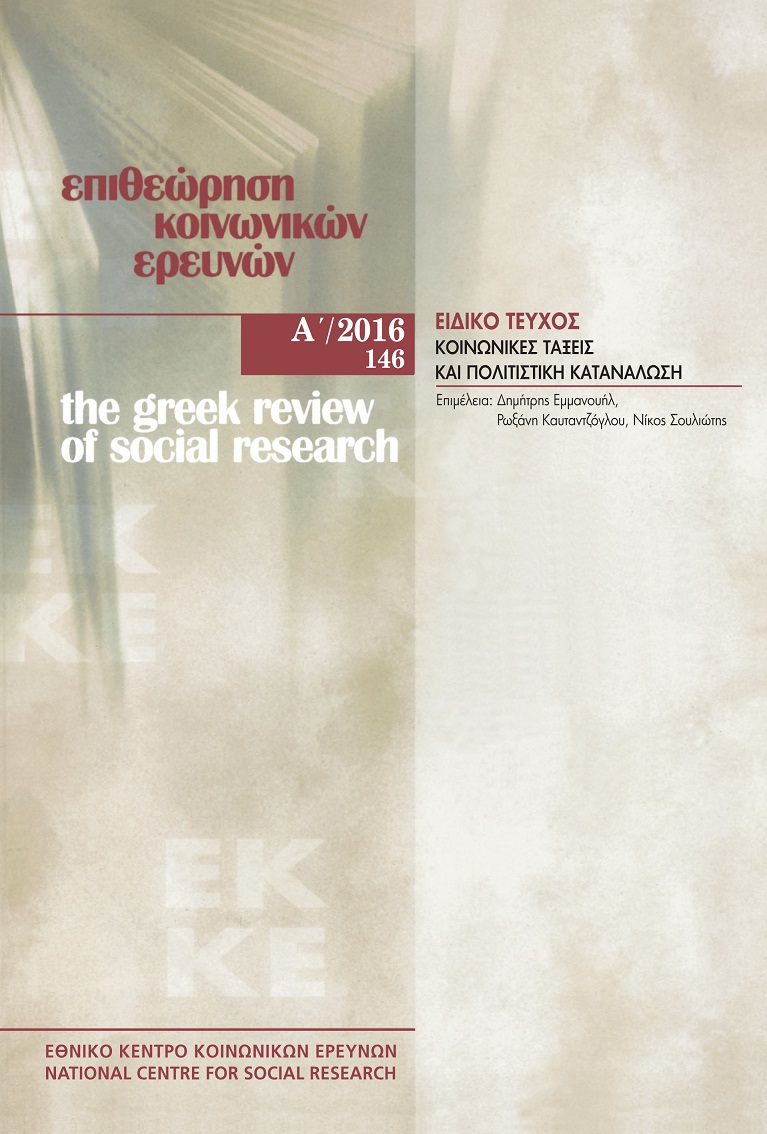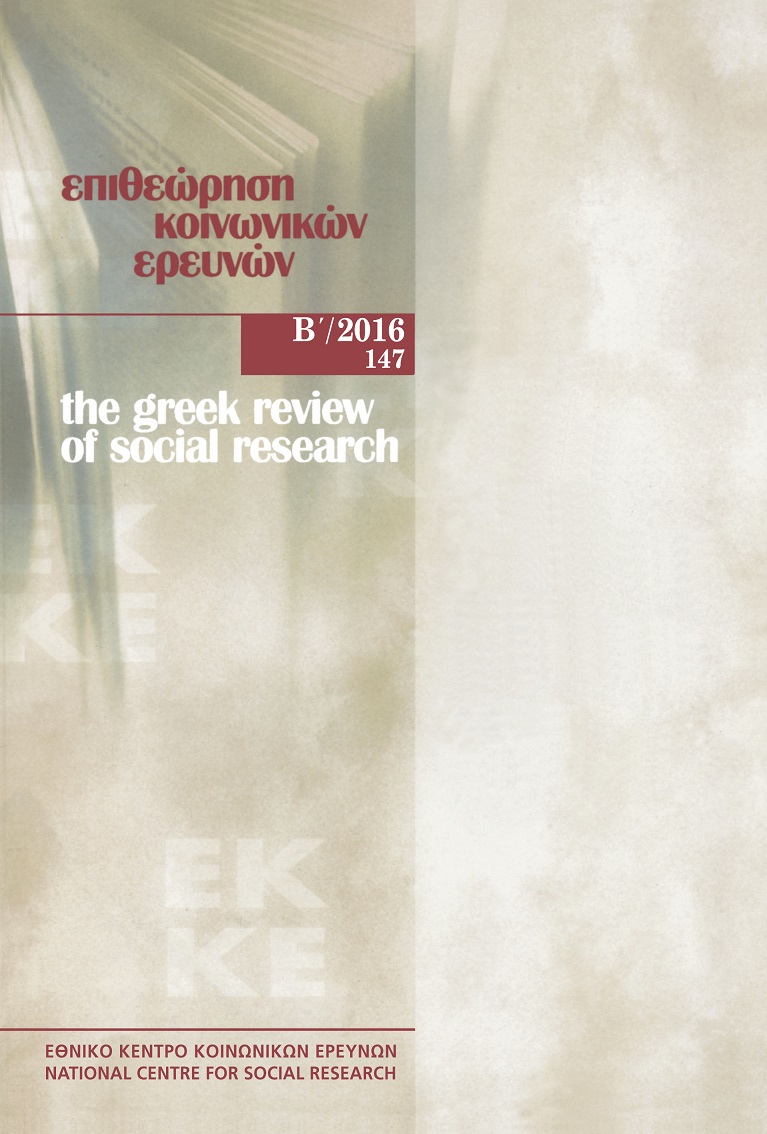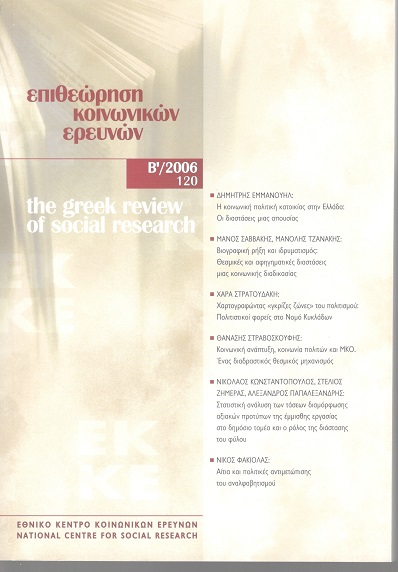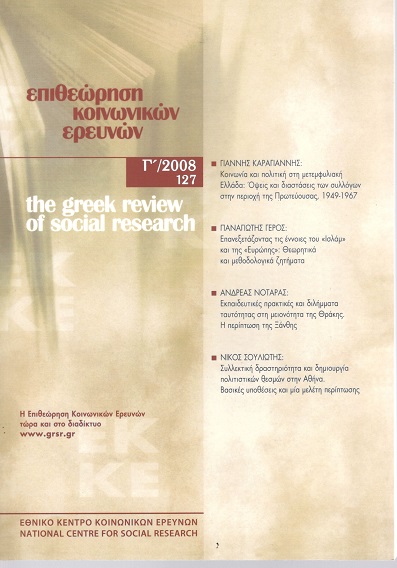Social stratification and consumption of music in Athens

Abstract
The paper examines the relation of social stratification with consumption of music in public venues in Athens. Data comes from a questionnaire survey based on a stratified random sample. The analysis focuses, firstly, on the patterns of consumption and, secondly, on the relation of these patterns with the dimensions of social stratification (socio-economic class, status, education, income). We find that «omnivore» music consumers are a rather small group and that the opposition between high and popular culture still structures the pattern of music consumption in Athens, although the limits between these two cultural poles are attenuated. On the other hand, in terms of social structure, the «popular» pattern of consumption has a pronounced inter-class character thus undermining simple models of one-to-one correspondence between social strata and culture. Amongst dimensions of social stratification, education and status have the most determinant role in shaping the consumption patterns, while the influence of socio-economic class appears to be statistically insignificant.
Article Details
- How to Cite
-
Σουλιώτης Ν., & Εμμανουήλ Δ. (2016). Social stratification and consumption of music in Athens. The Greek Review of Social Research, 146, 77–113. https://doi.org/10.12681/grsr.10644
- Section
- Articles

This work is licensed under a Creative Commons Attribution-NonCommercial 4.0 International License.
Authors who publish with this journal agree to the following terms:
- Authors retain copyright and grant the journal right of first publication with the work simultaneously licensed under a Creative Commons Attribution Non-Commercial License that allows others to share the work with an acknowledgement of the work's authorship and initial publication in this journal.
- Authors are able to enter into separate, additional contractual arrangements for the non-exclusive distribution of the journal's published version of the work (e.g. post it to an institutional repository or publish it in a book), with an acknowledgement of its initial publication in this journal.
- Authors are permitted and encouraged to post their work online (preferably in institutional repositories or on their website) prior to and during the submission process, as it can lead to productive exchanges, as well as earlier and greater citation of published work (See The Effect of Open Access).





